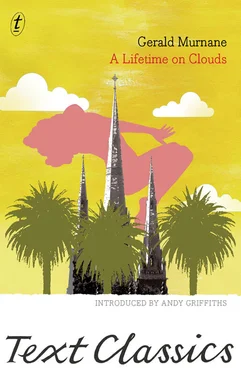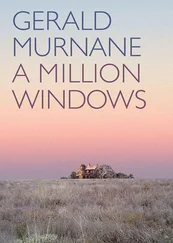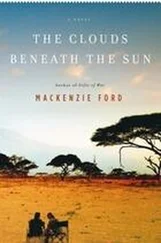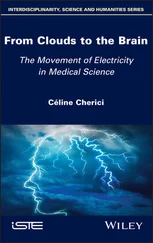All that Adrian knew of Victoria was the western suburb of Melbourne where he had grown up and gone to primary school, Accrington and the few south-eastern suburbs that he crossed in the train to St Carthage’s or explored on his bike at weekends, the landscape on either side of the railway line between Melbourne and Colac and a few miles of farmland around his uncle’s property at Orford. None of these places seemed a fitting backdrop for the scenes of his married life — carrying a radiant Denise across the threshold of their first home, bringing her home from hospital with their first child and so on.
But Adrian knew of places in Victoria that were worthy settings for a great love story. They were landscapes so different from the suburbs of his childhood that even the trivial events of his married life would seem momentous, and Adrian, the husband, would forget all those Sundays when he had come home from mass with nothing to do but climb the solitary wattle tree in the backyard and look across rows of other backyards and wait for the six o’clock Hit Parade in the evening.
As a boy Adrian had travelled each January by train from Melbourne to his uncle’s farm at Orford. On the morning of each journey he leaned against the dark green leather backrest and studied the photographs in the corners of his compartment.
The titles of the photographs were brief and sometimes curiously imprecise— Erskine Falls, Lorne; In the Strzelecki Ranges; Road to Marysville; Walwa; Camperdown With Mount Leura; Near Hepburn Springs. In some of the pictures a solitary traveller, with arms folded, leaned against a tall treefern, or a motor-car empty of people stood motionless on an otherwise deserted gravel road leading towards a tiny archway where distant trees closed over against the daylight. Adrian knew from the waistcoats and moustaches of the travellers and the shapes of the cars and the brown hues of the sky and land that the photos had been taken years before. The be-whiskered men and the unseen people who had left their motor-cars standing on dusty roads might have died long since. But Adrian was sure, from their grave gestures and solemn faces and the way they had stationed themselves at unlikely spots in the forest or by the roadside, that these travellers of olden times had discovered the true meaning of the Victorian countryside.
Leaning back in his window seat at Spencer Street station while drab red suburban trains dragged crowds of clerks and shop assistants into Melbourne to work, Adrian wanted to leave the city forever and journey to the landscapes of the dim photographs. Somewhere among forests of mountain ash or damp treeferns or beside a foaming creek, he would search for the secret that lay behind the most beautiful scenery in Victoria.
But the Port Fairy train followed the same route each year and Adrian had to get out at Colac and travel with his uncle to the same bare paddocks near Orford. Yet, as a married man at Triabunna, Tasmania, Adrian had still not forgotten the country of the photographs. He told his wife they would make their home in a valley beside a waterfall at Lorne or on a hillside overlooking Camperdown with Mount Leura, or, best of all, in the trees above a bend in the road near Hepburn Springs.
He would need a suitable job or profession. Farming was too hard — it would leave him too little time with his new wife. But there were men who drove up sometimes to his uncle’s farm and strolled around the paddocks without soiling their hands. He would be one of them — a veterinary surgeon or an expert from the Department of Agriculture. Looking back, he saw he had always been destined for this sort of life. As a boy in Form Four he had often relieved his boredom by staring at pages in his General Science textbook with diagrams of dissected rabbits or pictures of soil erosion labelled Before and After.
Sherd took his bride to their new home on a timbered hillside near Hepburn Springs and bought a savage Queensland heeler dog to protect her while he was away in the daytime. On the first night after they had arranged their furniture and unpacked their wedding presents he sat down with her in the spacious lounge-room and looked thoughtful.
When she asked him what was the matter, he said, ‘I was only thinking of the grave responsibility on my shoulders — to carry on where the nuns and priests left off and teach you the rest of the facts about marriage. Perhaps I should deal with one topic each night.
‘Tonight I’ll discuss a subject that probably made you shudder if ever you heard it mentioned when you were young and innocent — birth control. What I’m about to say is a summary of all I’ve read about birth control in Catholic pamphlets, and all I’ve been taught by priests and brothers.
‘Any impartial observer would agree that the marriage act — that operation I’ve performed on you in the privacy of the marriage bed — must have a serious purpose quite apart from the fleeting pleasure associated with it. The purpose, as any rational person will agree, is the procreation of children. Now this purpose is a part of what philosophers and theologians call the Natural Law. And the Natural Law was designed by Almighty God to make the world run smoothly. It must be obvious, then, that any tampering with the Natural Law is likely to have disastrous consequences. (Can you imagine the consequences if someone interfered with the way the planets revolve around the sun?)
‘Well, birth control violates the Natural Law by removing the purpose from the marriage act. (You may be wondering how this is done. Without going into the sordid details, I can tell you there’s a certain little piece of slimy rubber that non-Catholic chemists sell for profit. Armed with this disgusting weapon, a man can enjoy the pleasure without the purpose and defy the Natural Law.)
‘You won’t be surprised to learn that this grave sin has grave consequences. It’s a known fact that artificial birth control causes profound physical and mental disturbances. I’ve heard from a priest who knows all about these matters that many non-Catholic couples are so afraid of the psychological effects of birth control that they just will not practise it. So you see the Natural Law is not just something the Catholic Church made up.’
While Sherd paced up and down the lounge-room carpet, his wife reclined on the sofa and drank in every word he said. Behind her the huge windows framed a vista of a twilit forested valley more satisfying than any of the scenes that the young Adrian used to stare at in railway carriages, wondering what was the secret behind their beauty.
When the Sherds had first moved into their home near Hepburn Springs, they were so happy that they seemed to be enjoying a taste of heaven on earth. But looking through his lounge-room window after his discussion of birth control, Sherd realised that all they were enjoying was their rightful reward for following the Natural Law.
What he saw through his window was a valley where no sexual sin was ever committed. The Natural Law governed everything in sight. It caused the sky to glow and the treetops to tremble all over the forests near Hepburn Springs. It was at work too at Walwa, on the road to Marysville and in Camperdown with Mount Leura.
Sherd knew now what had drawn him to these scenes in the Port Fairy train years before. The mysterious secret beyond those lonely roads, the thing that travellers had abandoned their cars to search for, was the Natural Law.
He himself would never have to search for it again. He could see it in operation outside his lounge-room windows and even in the privacy of his own bedroom.
One night when the dice and the numbered tickets had transported Adrian to a night in the fourth month of his marriage when he would have liked to be intimate with his wife but she wasn’t feeling up to it, he lay back with his hands behind his head and began to discuss with Denise the history of marriage down the ages.
Читать дальше












